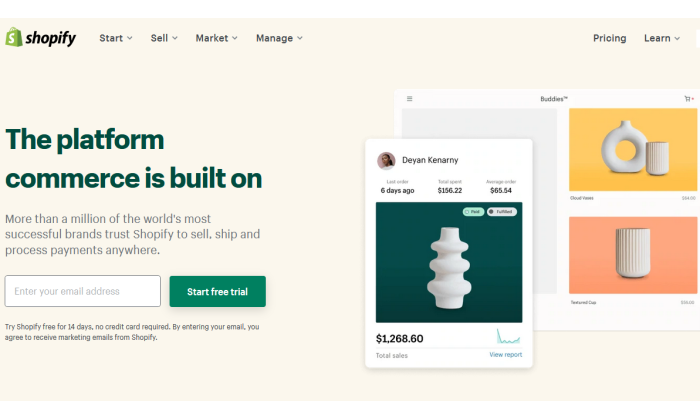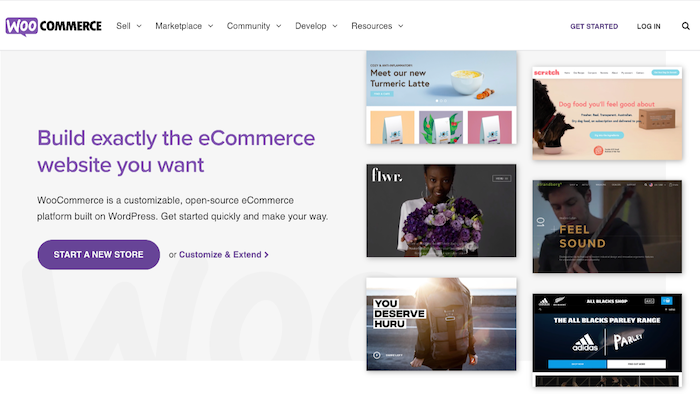Shopify Review

By Neil Patel
Disclosure: This content is reader-supported, which means if you click on some of our links that we may earn a commission.
One platform where you can sell just about anything to anyone anywhere? That’s Shopify in a nutshell. But once you unpack it, it’s easy to see why it powers over 1 million websites and manages billions in sales.
Gone are the days when you had to figure out how to start an ecommerce site from scratch. With Shopify, having a virtual storefront up and running is possible in a matter of minutes. It offers you plenty of marketing tools to make your store a success from the start.
Whether you’re a small business starting up or you’re already raking in millions in sales, Shopify is an extremely powerful ecommerce website builder that helps your online business empire run smoothly, capture sales, and grow.
Shopify Compared to The Best Ecommerce Platforms
So what sets Shopify apart from other ecommerce platforms out there? To put it simply, it does a great job of managing all the moving parts of an ecommerce business by being accessible, versatile, and easy to use. While there are other ecommerce platforms out there like Wix or Bigcommerce, they tend to have their limits with what you can and can’t do.
Drag-and-drop builders, customer analytics, a built-in payment processing system, 24/7 support, and ready-made templates are only the tip of the iceberg when you really look into everything Shopify has to offer. But you shouldn’t just take my word for it.
See all of our top picks to see how each ecommerce platform stacks up to ensure you’re making the best decision for your online business.
Who is Shopify Best For?
Shopify is for anyone that wants to easily start an ecommerce store and drive online sales. Because of its all-in-one nature, it isn’t just for one niche or one type of store, which is good news for you.
Shopify: The Pros and Cons

While Shopify rules in the ecommerce platform space, it might not always mean it’s the best platform for you. As with every other ecommerce platform, there are pros and cons to consider.
Pros
Built-in payment processor: With Shopify, you don’t have to worry about using a third-party payment processor. It’s all built-in for you and ready to accept payments once you’ve listed your products and hit the publish button.
With their payment processor, you can accept all major credit cards, Apple Pay, Google Pay, PayPal, Amazon Pay, and even cryptocurrency. This means one less thing to actively manage in your store and increased trust with your customers.
The ability to scale: With Shopify, you don’t have to jump ship once you see your store start to grow in traffic and sales. It’s equipped to support your store whether you’re making three or three million sales a day.
Plenty of guides and documentation: Shopify does an excellent job …read more
Source:: Kiss Metrics Blog










